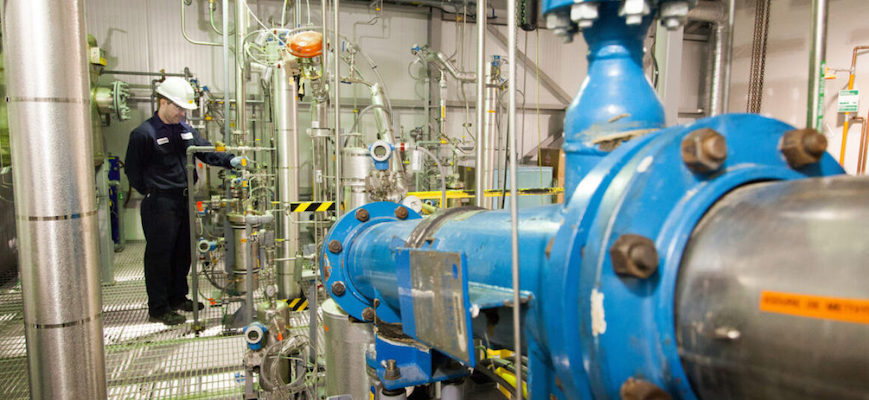
CIB commits $277 million for Canada’s largest biorefinery and electrolyzer
March 27, 2023
By CCE
The carbon recycling facility is expected to cut more than 170,000 tonnes of GHG emissions annually.
The Canada Infrastructure Bank (CIB) will provide a $277-million loan to a joint venture (JV) for the construction of the country’s largest biorefinery and electrolyzer in Varennes, Que. The project is the first in CIB’s low-carbon fuels, carbon capture utilization storage (CCUS) and hydrogen initiative.
The JV partnership between energy companies Shell, Suncor and Proman and the government of Québec is using Enerkem’s thermochemical ‘waste-to-methanol’ process in the development of Varennes Carbon Recycling (VCR). This $1.2-billion facility’s eletrolyzer will supply clean hydrogen and oxygen to convert more than 200,000 tonnes of non-recyclable waste and residual biomass into biofuels and circular chemicals, with an annual capacity of up to 130 million L.
“Converting waste and residual biomass into clean hydrogen is the CIB’s latest effort helping the country reach net-zero by 2050 and represents its first investment in low-carbon fuels,” says Ehren Cory, CIB CEO.
“While electrification will be a chosen route in some sectors, clean fuels will also play a very significant role going forward,” adds Natural Resources Canada (NRCan) minister Jonathan Wilkinson.
“Suncor is proud to be a partner in a project that will divert non-recyclable waste from landfills and turn it into renewable methanol for use in marine transportation and the production of circular plastics,” says Mark Townley, senior vice-president (SVP) of supply, trading and optimization for Suncor. “The financial support provided by the Canadian and Quebec governments will enable this project to become one of the largest producers of renewable methanol in the world.”
The carbon recycling facility is expected to cut more than 170,000 tonnes of greenhouse gas (GHG) emissions annually and 4.25 million tonnes, over the project’s 25-year lifespan., equivalent to taking 50,000 passenger vehicles off the road.
